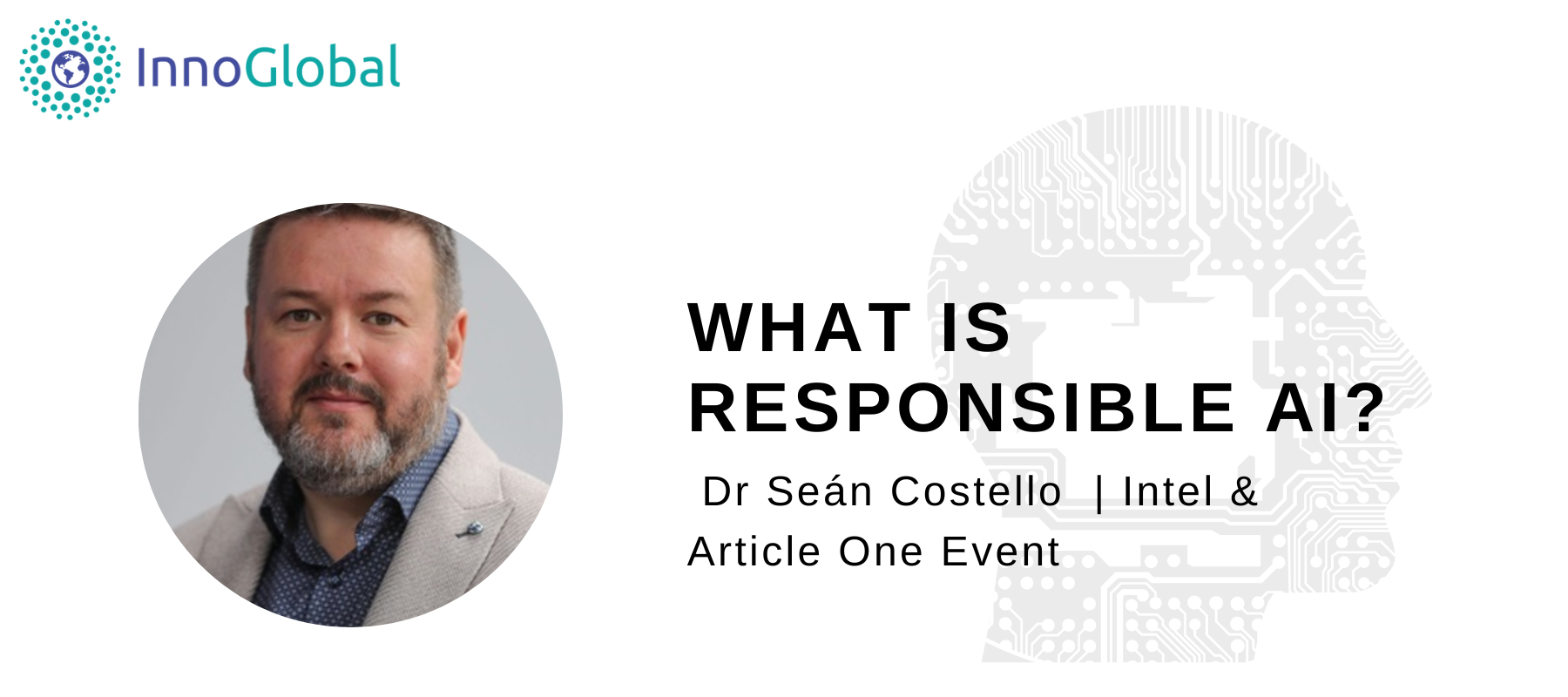Artificial Intelligence Ethics
As the old adage goes “With great power comes great responsibility”.
What follows below is a compelling narrative by our very own Dr Seán Costello after attending an event to review ethical and responsible business practices in the use of Artificial Intelligence.
The objective of this event, hosted by Intel and Article One in association with the School of Law at Trinity College Dublin, was to investigate responsible business conduct, innovation and Artificial Intelligence (AI). It brought together thought leaders, policymakers, and academia to look into the subject matter of responsible development of AI and applying responsible AI principles to manufacturing.

A PIECE BY SEAN COSTELLO
I attended as a panel speaker at a symposium hosted by Intel and Article One in association with the School of Law at Trinity College Dublin. The Symposium was a day for debating and discussing responsible business conduct and innovation with respect to the ethical use of Artificial Intelligence.
In an age where we are encountering a recession on Human Rights and privacy coupled with increased authoritarian efforts to exert control, the context and gravity of the issues at play with respect to human rights, privacy, and personal and societal freedoms were established early by the presence of keynote speaker Eamon Gilmore, the EU Special Representative for Human Rights where he communicated the devotion of the EU to do its part to ensure the responsible use of such technology.
The intention of the symposium was to delve into issues around responsible development and deployment of Artificial Intelligence (AI) along with debating the emergence of new international standards and regulations on responsible business conduct in a way that regards all stakeholder expectations and also ensures that the Human Rights framework is reflected in the attempt to define best practices, standards and regulations in the ethical deployment of AI.
These were heavy topics, but increasingly relevant as AI increasingly penetrates all aspects of our lives. I was part of a panel alongside Lama Nachman from Intel, Matt Moran BioPharmaChem Ireland and chaired by Erik O’Donovan, Head of Digital Economy Policy at IBEC where we were sharing our experience of the practical issues surrounding the responsible deployment of AI in manufacturing.
THE CHALLENGES
During the discussion, I couldn’t help but draw parallels between the challenges facing policymakers and other stakeholders today, in setting standards and regulations for the responsible and ethical use of AI, and the raison d'etre for the emergence of regulators such as the FDA and EMA in the manufacture of medicines. The birth of the FDA and more recently the EMA was driven by historical ethical challenges such as mislabelling, misbranding, adulteration and contamination (both intentional and accidental) of medicinal products by corporations and individuals. It required measures for the protection of the public and became the driver for the culture of responsible governance that we have today in pharmaceutical, food and medical device manufacturing. Surely lessons can be learned from this analogous perspective that is equally attributable today to the responsible use of AI.
Listening to this talk taking place on the site which hosts the oldest school of medicine in Ireland, I couldn't help but connect much of what was being discussed to the maxim ‘primum non nocere’ (first, do no harm) ascribed to the ancient Greek physician Hippocrates on whose oath is the principal precepts of bioethics that all students in healthcare abide by even today. Maybe such an alike oath or code of conduct is the beginning for us all in the ethical use of AI.
Congratulations to Article One, Intel, School of Law at TCD for a suburb event and to Paula Williams Global Programme Owner for Human Rights at Intel for the invitation to participate.
Our Impact

CASE STUDY
Accelerating Africa's Green & Digital Transformation…
Fostering investment in human capital is crucial to meeting the challenges of globalisation and digitalisation and their impact on the workforce...

INSIGHT
AI and Machine Learning for Medicine Manufacturing …
Automated image analysis: the power of convolutional neural networks
READOUR THINKING
Innoglobal's Digital Maturity and Sustainability Assessment
We can help you determine where you are on the road to Industry 5.0, where you are benchmarked against other manufacturing organisations.





